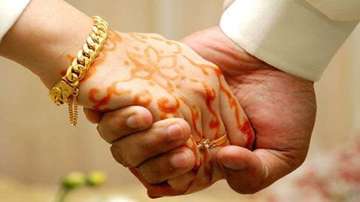The Hindu Marriage Act was passed in 1955 and designed to protect the rights of the Hindu bride and groom tied together by the holy bond of marriage. The type of ceremony necessary is not specified in the law since various methods exist for a man and woman to marry according to Hindu religious custom.
The law was inspired by the fraud case and the humiliation endured by people in the name of marriage. As a result, the act binds everyone Hindu, Jain, Sikh, or Buddhist and has no bearing on Muslims, Christians, Parsis, or Jews. The Hindu Marriage Act binds Hindus by birth as well as Hindus by religion.
Supreme Court's on Hindu Marriage
Interestingly, the matter regarding the Hindu marriage again came to the fore on May 1, when the Supreme Court was hearing a case of two trained commercial pilots, who sought a divorce decree without performing a valid Hindu marriage ceremony. During the hearing, the top court asked the couple to "think deeply about the institution of marriage even before they enter upon it and as to how sacred the said institution is, in Indian society".
The Supreme Court observed that a Hindu marriage cannot be termed conclusive in the "absence of a valid ceremony" under the Hindu Marriage Act. The court also stated that a Hindu marriage is not valid without the 'saptapadi' ceremony (taking seven rounds around the sacred fire) and other essential rituals.
What is Hindu Marriage Act | Key takeaways
- According to the law, a person should not live with two spouses at the same time.
- A groom must be 21 years old while the bride should be at least 18 years old and none of them should be incapable of providing legal consent due to insanity.
- If the parties are capable of giving legal consent, they must not have a mental illness that renders them unfit for marriage registration and childbearing.
- Neither the bride or groom should be subjected to insane assaults regularly.
- The parties should not be sapindas of each other and should not be in the banned degrees of relationship unless their customs or usage enable them to form such a married connection.
The Hindu wedding shall take place by following customs of the either side and taking the 7 pheras -- called the Saptapadi, the seven steps together by the bride and husband around the holy fire (havan). The taking of Saptapadi is one of the rites and the marriage becomes full and binding when they take the seventh step together.
One of the core part of section 9 of the Hindu Marriage Act is that a spouse has the right to maintain and preserve the purity of their wedding through cohabitation.
Some other features of the act
- According to the act, two people are required for the marriage.
- A spouse must withdraw from the society of the other spouse.
- A harmed person may seek recovery of conjugal rights.
ALSO READ | 'Not an event of song and dance': SC says Hindu marriage invalid unless performed with essential ceremonies
